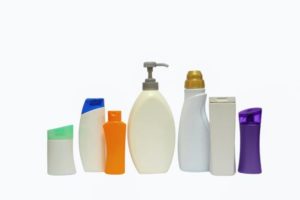 Did you know that our modern lifestyle is exposing us to thousands of harmful chemicals? All of us are exposed to many harmful chemicals daily - in ordinary household products, at work and school, in our food, and in the air and water around us. These chemicals are found in plastics, in stain resistant finishes, non-stick cookware, flame retardants, fragrances, pesticides, water resistant finishes, and antimicrobial products.
Did you know that our modern lifestyle is exposing us to thousands of harmful chemicals? All of us are exposed to many harmful chemicals daily - in ordinary household products, at work and school, in our food, and in the air and water around us. These chemicals are found in plastics, in stain resistant finishes, non-stick cookware, flame retardants, fragrances, pesticides, water resistant finishes, and antimicrobial products.
All these chemicals have made our lives easier in many ways, but they have a dark side. The chemicals leach out of the products and get on us and in us, and can be measured in our blood and urine.
They are linked to all sorts of health problems (reproductive effects, infertility, neurological effects, lower IQs, immunological problems, cancers, etc.) and the list is growing annually. Many are hormone (endocrine) disruptors. Developing children and fetuses are especially vulnerable, and the effects can be life-long.
We all have many of these harmful chemicals in our body. No one can totally avoid all these chemicals, but we can lower our exposure to many of them quite a bit. These chemicals get in us various ways: we ingest them (in food and water), we absorb them through the skin, and we breathe them in (e.g. in household dust and in the air).
Many chemical levels can be reduced quickly - within a few days or weeks (for example, by switching to different personal care products, switching to organic foods, and not eating canned foods).
 It is especially important to lower exposures to these harmful chemicals if you are considering conceiving a child, are pregnant, or have children. Many of these chemicals are linked to fertility problems for both men and women, and researchers think this is why male fertility is dropping so rapidly over the past few decades.
It is especially important to lower exposures to these harmful chemicals if you are considering conceiving a child, are pregnant, or have children. Many of these chemicals are linked to fertility problems for both men and women, and researchers think this is why male fertility is dropping so rapidly over the past few decades.
Yes, it does require a life-style change, and it does require reading labels, but it is worth it. Following these tips should also have the added bonus of improving your gut microbial communities. It's all related.
HOW TO REDUCE EXPOSURE TO HARMFUL CHEMICALS:
IN GENERAL - Try for a more “natural and non-toxic” lifestyle, and reduce use of plastics (including vinyl) and pesticides.
- Read labels of personal care products, household products, and clothing. Avoid products with parabens and oxybenzone. Avoid products that are antimicrobial, antibacterial, anti-odor, anti-stain, anti-mildew, and nonstick.
- Use unscented or fragrance-free products, including personal care products. Avoid fragrances or scented versions of products.
- Don't use air fresheners, dryer sheets, scented candles, incense, essential oils.
FOOD
- Buy foods and beverages in glass bottles and jars whenever possible. Store food in glass, stainless steel, or ceramic containers. Avoid plastic bottles and containers.
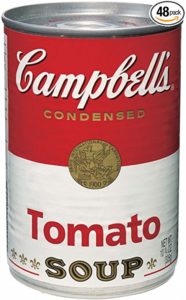 Avoid canned foods, including aluminum cans - they are all lined with plastics containing BPA or equally bad BPA alternatives. Canned foods are a major source of endocrine disruptors.
Avoid canned foods, including aluminum cans - they are all lined with plastics containing BPA or equally bad BPA alternatives. Canned foods are a major source of endocrine disruptors. - Use glass or stainless steel water bottles. Avoid using plastic water bottles.
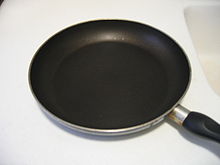 Avoid non-stick cookware. Use stainless steel, ceramic, and iron cookware.
Avoid non-stick cookware. Use stainless steel, ceramic, and iron cookware.- Microwave food only in regular dishes. Not in plastic containers or pouches.
- Eat more home-cooked meals. Eat less fast food or take-out food (endocrine disrupting chemicals migrate out of the packaging).
- Eat as much organic food as possible (to lower pesticide exposure).
 Eat as much unprocessed and real food as possible. Avoid additives, artificial ingredients. Diets rich in whole grains, fruits, vegetables, nuts, seeds, legumes (beans) have many health benefits.
Eat as much unprocessed and real food as possible. Avoid additives, artificial ingredients. Diets rich in whole grains, fruits, vegetables, nuts, seeds, legumes (beans) have many health benefits.- Avoid products that say BPA-free or that contain BPA or BPS. The substitute chemicals used in place of BPA are as bad, if not worse.
- Avoid titanium dioxide in food, which is frequently in nanoparticle form. In general, avoid products that say they have "nano-" ingredients.
- Use glass bottles to feed babies. Not plastic bottles.
PERSONAL CARE
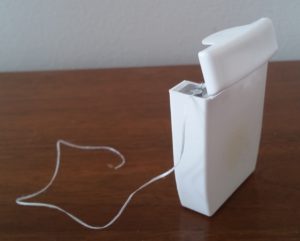 Use unwaxed or plain waxed dental floss. Do not use Oral-B Glide dental floss or dental floss similar to Glide (made with Teflon).
Use unwaxed or plain waxed dental floss. Do not use Oral-B Glide dental floss or dental floss similar to Glide (made with Teflon).- Look for fragrance-free or unscented products. Avoid perfumes, scents, fragrances, essential oils.
- Use as few personal care products as possible and read ingredients.
Choose products that are free of phthalates, parabens (frequently in lotions), triclosan, and oxybenzone (in many sunscreens).
- Wash hands with ordinary soap and water. This works better than antimicrobial and antibacterial products.
- Avoid handling thermal paper receipts as much as possible.
HOME & GARDEN
 Use natural products (e.g. wood, aluminum, cotton, wool) in the home.
Use natural products (e.g. wood, aluminum, cotton, wool) in the home.
Try to avoid plastic products, including vinyl - whether mattress covers, shower curtains, window blinds, toys, or flooring.
- Use cotton sheets (or other natural fabric such as linen).
Avoid “easy care” or “no-iron” finishes. Avoid any bedding that is antimicrobial, anti-odor, or treated with silver or copper.
- Wooden or tile floors are best. Vacuum or use water and soap (if needed) in maintaining them, and not floor waxes. Avoid vinyl floors (they outgas).
- Carpets should be untreated, and not treated for stain-resistance. Wool rugs are naturally flame-resistant, but need to avoid moth-proofing (pesticides). Best are chemical free wool, cotton, hemp, or other natural material rugs.
Carpets accumulate dirt, pesticides, and whatever else is brought in from the outdoors on our feet (lead, etc.).
- Take shoes off at the door.
- Vacuum and dust frequently. Get a good vacuum, preferably with a HEPA filter.
- Open some windows to air out the home - a few minutes each day is good.
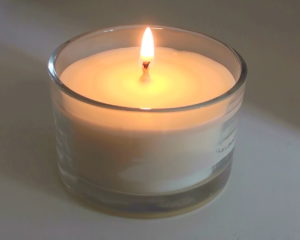 Do not use air fresheners, incense, room scents, scented candles, or essential oil diffusers or products.
Do not use air fresheners, incense, room scents, scented candles, or essential oil diffusers or products.
Beeswax and soy candles are fine.
- Do not use dryer sheets in the dryer. (Coats clothes with chemicals!)
- Buy sofas and other upholstered furniture that has not been treated with flame-retardant chemicals. Avoid those treated with flame retardants, and avoid stain-resistant coatings (Scotchguard). Check labels.
Look for natural materials (cotton, linen, hemp), or fabric that is a mixture of natural and synthetic (nylon, acrylic, polyester) materials.
- Avoid using wallpapers coated in plastic (vinyl, PVC), which is most wallpaper.
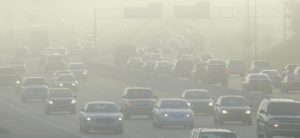 Try not to live next to a highway, busy road, or factory. Air pollution!
Try not to live next to a highway, busy road, or factory. Air pollution!- Don’t allow smoking in the home.
- Use an air purifier if you live in an area with high levels of air pollution.
- Use least-toxic Integrated Pest Management for indoor pest problems. This means monitoring pests, and fixing any leaks or holes, using baits, traps, vacuuming pests, etc.
Do not use “bug bombs”, and do not do routine applications of pesticides in the home or the home exterior .
 Use organic gardening in gardens and lawns. Don’t use pesticides on lawns.
Use organic gardening in gardens and lawns. Don’t use pesticides on lawns.
View weeds in the lawn as wildflowers and bee habitats. Also great for children, pets, and birds.
FURTHER INFORMATION: Some web-sites focus on natural products or rate products according to ingredients. Environmental Working Group (ewg.org) is an excellent resource.
Information came from research discussed in many Lacto Bacto posts (See categories: flame retardants, endocrine disruptors, pesticides, children, pregnancy & childbirth, or do searches such as: toxic chemicals, and fragrances).
